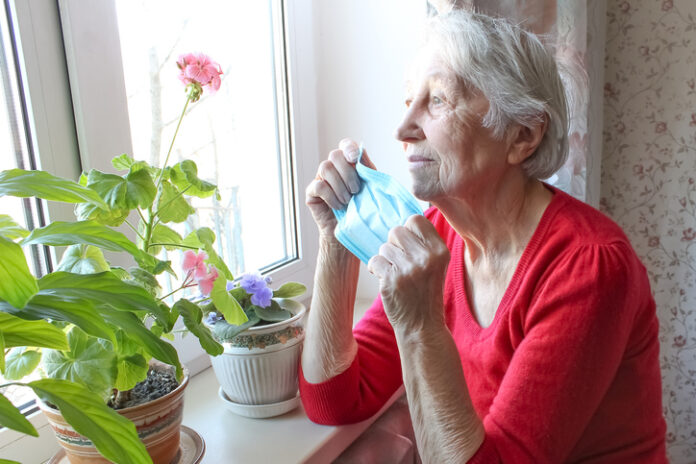Physicians advocating for early at-home treatment for COVID-19 want the National Institutes of Health and the U.S. Food and Drug Administration to change their guidance on the use of hydroxychloroquine (HCQ) for early-onset COVID-19 because clinical trials on new uses for approved drugs can take years—too long for a pandemic, they argue.
FDA’s guidance, issued July 1, “cautions against [the] use of hydroxychloroquine or chloroquine for COVID 19 outside of the hospital setting or a clinical trial due to risk of heart rhythm problems.” On October 9, NIH stated it does not recommend treatment with the antiviral dexamethasone outside of a hospital setting. Several states have restricted HCQ based on this guidance. Violations could result in penalties or increased liability.
Peter McCullough, M.D., a Baylor cardiologist and public health researcher who has been leading a charge on early at home COVID-19 treatment is calling on colleagues to reach out to lawmakers to urge the agencies to update their guidance. McCullough says treatment decisions for high-risk individuals need to be based on physician or provider judgement and whether a patient wishes to remain at home.
“FDA guidance against the use of hydroxychloroquine (HCQ) should be modified to indicate that the decision to use HCQ in the appropriate off-label treatment of COVID-19 should be based on the physician/provider judgement considering the benefits and risks of treatment,” McCullough said. “NIH guidance against any form of outpatient treatment of COVID-19 should be modified to indicate that in persons over age 50 and or with serious baseline medical conditions that the decision to undertake ambulatory treatment should be based on clinical judgement and made between the physician/provider and the patient based on his/her preferences to remain at home.”
More Evidence of Early Home Treatment
In the meantime, new evidence has emerged that early COVID-19 treatment can make a difference in the fight against the pandemic.
A new study published October 29 in the International Journal of Antimicrobial Agents finds that early anti-viral treatment with zinc and azithromycin for at-risk patients significantly reduced hospitalization and death.
Researchers Roland Derwand, Martin Scholz, and Vladimir Zeleko reviewed the cases of 141 patients with COVID-19 treated early in an outpatient setting and compared the results with 377 patients who did not receive such treatment. Four of the 141 patients (2.8 percent) ended up in the hospital, compared to 15.4 percent in the untreated group. In the untreated group, 13 patients (3.5 percent) died compared to one patient (0.7 percent) in the group that got drug treatment at home.
“Risk stratification-based treatment of COVID-19 outpatients as early as possible after symptom onset with the used triple therapy, including the combination of zinc with low dose hydroxychloroquine, was associated with significantly fewer hospitalisations,” the researchers wrote.
Risk stratification is a way of categorizing patients into treatment groups based on their risk factors for death. Mortality from COVID-19 increases dramatically for older patients and those with pre-existing conditions.
-Staff reports
Internet info:
Derwand, R., Scholz, M., Zelenko, V. COVID-19 outpatients – early risk-stratified treatment with zinc plus low dose hydroxychloroquine and azithromycin: a retrospective case series study. Int. J. Antimicrob. Agents, October 29, 2020:
doi: https://doi.org/10.1016/j.ijantimicag.2020.106214






















[…] An August 7 article in the American Journal of Medicine describes an early treatment protocol for COVID-19. Physicians are seeking changes in NIH/FDA Guidance. […]